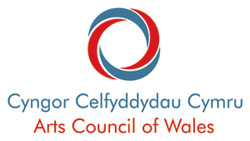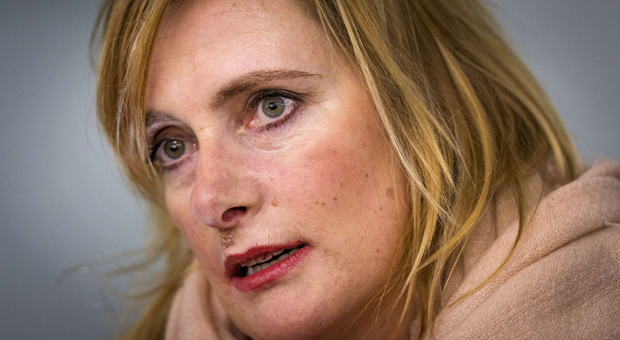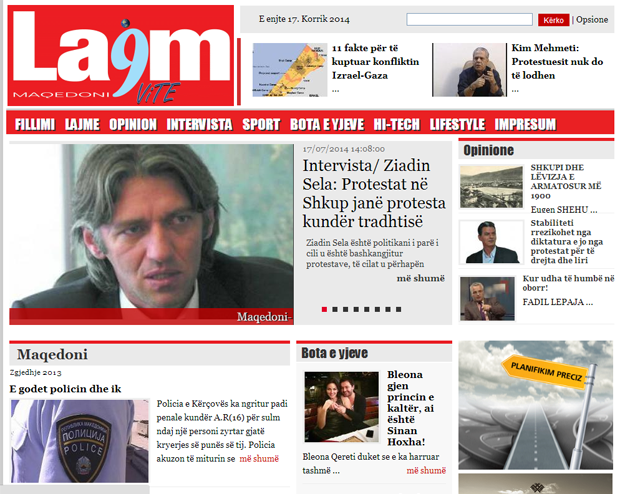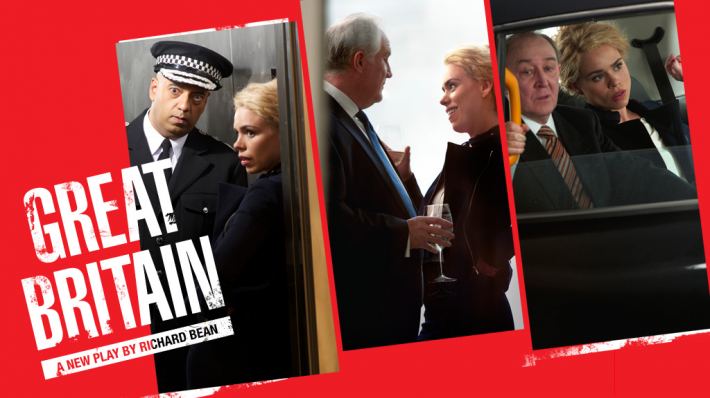18 Jul 2014 | Events
Index on Censorship is delighted to announce the first two events in a series of online conversations about artistic freedom of expression in Wales. They form part of our ArtFreedomWales programme looking at how artistic freedom is regarded, supported, debated and promoted across the arts sector, in the press, by the public, by funders and policy makers in the UK.
Wales as a centre for artistic freedom of expression – the opportunities and the obstacles.
Online conversation with Tim Price – playwright, Kathryn Gray – poet and writer, Lisa Jen – musician/actor/writer and Leah Crossley – artist.
What: ArtFreedomWales
When: July 18, 11am (BST)
Where: Take part in the Google Hangout here
Artists working in Welsh – opportunities and obstacles to expression
Online conversation with Arwel Gruffydd – Artistic Director Theatr Genedlaethol Cymru, and Bethan Parry Jones – broadcaster, journalist and writer.
What: ArtFreedomWales
When: August 1, 11am (BST)
Where: Take part in the Google Hangout here
Please note: this conversation will be in Welsh with an English summary at the end.
These are the first two of four events we are live-streaming over the summer in the lead up to a symposium in Cardiff at Chapter Arts Centre (expected in October) on artistic freedom of expression in Wales. You will be able to email and tweet questions to the panels during the discussion. We want to hear from everyone producing and participating in the arts in Wales who has something to say about freedom of expression. These discussions will inform the agenda for a symposium in Cardiff and each will focus on a different theme that we have identified through our initial research.
What are the issues in Wales? What are the opportunities? What are the obstacles? What has the right to freedom of expression got to do with Wales’ major cultural debates and policies – bi-lingualism, engaging young people and ethnically diverse voices, tackling poverty, maximising on new cultural infrastructure, having an international voice?
Last year we held a conference in London ‘Taking the Offensive’ which identified and debated the social, political or legal controls that shape the cultural landscape. (Read the full report here.) We held a symposium in Belfast in May exploring these issues in Northern Ireland. (The report is due shortly.)
We want to engage with everyone who is interested in this subject. Welsh translations of all our key messages and information will be provided. Given the limitations of the budget we cannot make this a fully bilingual project, but we will ensure that Welsh speaking artists are involved in all aspects of the programme and translation is available.

Arts Council of Wales supports this programme
18 Jul 2014 | Mapping Media Freedom, Netherlands, News

Rena Netjes
Dutch journalist Rena Netjes was sentenced in absentia to ten years in prison in Egypt. The Egyptian government’s case against her and other journalists generated media interest from around the world. With the help of her colleagues at the Dutch Union for Journalists she’s now raising the issue of human rights and press freedom violations in Egypt in The Netherlands and abroad.
When freelance correspondent Netjes arrived at Schiphol airport on the 4th of February this year, she had just slipped out of Egypt after finding out she was blacklisted by the Egyptian government and would have to stand trial for on charges of working for Al Jazeera, terrorism and endangering national security. At home in The Netherlands, she recounted her escape with the help of Dutch diplomats in Egypt to newspapers and television in what seemed like a media circus.
While Netjes managed to flee Egypt, her colleagues were not so fortunate. Three Al Jazeera journalists, the Canadian-Egyptian Mohamed Fahmy, Egyptian Baher Mohamed and the Australian Peter Greste, have been sentenced to seven years, after being held in an Egyptian prison since December 2013.
In June, from the safety of her living room in The Netherlands, she learned that she has been sentenced to ten years in prison. She was convicted on the charges of spreading false information and promoting the banned Muslim Brotherhood. She was accused of working for Al Jazeera, which the Egyptian government claims promotes the views of the Muslim Brotherhood. Netjes says she only had coffee with the chief editor on one occasion. British journalists Sue Turton and Dominic Kane have also been sentenced in absentia to ten years imprisonment.
For Netjes, who lived and worked in Egypt for many years, the verdict means she might never be able to set foot in the country again.
“It’s still an emotional roller coaster,” she told Index on Censorship. She’s relieved to be free but is concerned about her colleagues now. “It’s hard to imagine these guys are in prison, in the hands of sadists.”
Her career as a foreign correspondent in Egypt is over, for now at least. Netjes would run the risk of being arrested if she returned. She can’t even go to most countries in the Middle East because of extradition agreements. “Even Lebanon extradites ‘terrorists’ to Egypt”, she said.
With the spotlight on her in The Netherlands, Netjes said she sees an opportunity to generate attention for Egypt’s human rights violations, the lack of press freedom and specifically the plight of the other journalists, who weren’t able to escape prison sentences. “They now depend on international pressure, by politicians and diplomats behind the scenes, but also on awareness raised by colleagues around the world”.
Netjes speaks frequently to Dutch and international media and is invited to panel discussions and public human rights events. “I’m trying to turn this traumatic experience into something positive,” she said. “I have a more platform to explain what is going on Egypt, to raise the subject of the abuses in Egypt”.
The Dutch Union for Journalists (Nederlandse Vereniging voor Journalisten, NVJ) jumped in to support Netjes’ case and the campaign for free media in Egypt. On July 8, NVJ-President Marjan Enzlin paid a visit to the Egyptian embassy in The Netherlands to address the issue.
At the embassy Enzlin expressed her concern about the trial and her worries about the lack of freedom for media in Egypt. “We told him these verdicts are a strong violation of press freedom. We asked him to deliver this message to his president”, she told Index on Censorship. “He told us he is not in the position to intervene. And then he even lectured us on how western media is poorly informed and is deliberately spreading negative stories about Egypt. It was ridiculous”.
Enzlin acknowledges that without Netjes’ involvement, the case probably wouldn’t have generated so much attention in Dutch media and politics. “It is because of Rena that this case is so high on the Dutch agenda. But through Rena, we should now fight for the others. We as free journalists in a free country have to make noise about the case. We should be a thorn in one’s side”.
Being one of the highest ranked countries in terms of media freedom, Enzlin believes the Dutch media should stand up. “The resistance needs to come from here”, she said. “We are spoiled in The Netherlands. We see it as our duty to support and help our colleagues in countries like Egypt”.
Immediately after the verdict in Egypt, the Dutch Minister of Foreign Affairs Frans Timmermans summoned the Egyptian ambassador. The Dutch government insists the trial wasn’t fair, and urged Egypt to improve human rights. The NVJ wants to make sure this kind of diplomatic pressure won’t wane over time. “This requires long term commitment, we have to keep the pressure up”, Enzlin says.
The NVJ has several actions and protests lined up. They will publish a photo gallery on their website of all journalists who have been convicted in Egypt. They have sent a letter to the Egyptian ambassador in The Netherlands asking for assurances that Netjes can travel to the country for her appeal without fear of detention. If Netjes can’t go to Egypt safely, the NVJ requested to go in her place.
After the Dutch parliament’s summer recess, the NVJ will ask for another meeting with the Egyptian ambassador. They plan to invite MPs to join them to add more political pressure. The union will also organise a protest at Amsterdam’s Schiphol Airport, in front of the gate for flights to Egypt. “We will make banners saying ‘journalists are not terrorists’. Something Egypt will not be happy with.”
Netjes is still publishing stories on issues in Egypt. “I still have my sources in Egypt feeding me with information because they see that I am in the position to speak and write freely”. Meanwhile, spreading the word about the deplorable situation for journalists and activists in Egypt became a mission on its own.
“I am deprived of my freedom to travel, but that is nothing compared to what the guys who are imprisoned are going through”, she said. “I will not rest before they are free.”
This article was updated on July 21, 2014 to reflect that Marjan Enzlin is the President of NVJ, not Director as previously stated.
More reports from The Netherlands via mediafreedom.ushahidi.com
Journalist denied entrance to public court hearing
‘Rules for using drones by journalists too restricted’
Journalists’ cameras seized by police
Dutch magazine on trial for photographing princess
This article was posted on July 18, 2014 at indexoncensorship.org
18 Jul 2014 | Macedonia, Mapping Media Freedom, News, Politics and Society

Besim Ibrahimi, intern for the Albanian-language newspaper Lajm, was arrested on Saturday, 5 July during a rally against the jailing of alleged extremist ethnic Albanian Muslims for the “terrorist” murders of ethnic Macedonians. The journalist was accused of taking part in the violent protests, while he was covering the rally under the instructions of his editor. Ibrahimi was released on Sunday, but the prosecutor has not yet decided if he will file charges against him or not.
“The policemen from the special units approached me and forced me to lie on the ground. When I told them that I am a journalist and I am here only to cover the protests, instead of releasing me, they beat me with batons and kicked me,” Besim Ibrahimi told Index few days after his prosecution.
“One of them told me ‘you’re not a journalist, you came here to protest’ and another was shouting ‘hit him, hit him’. And they just kept beating me until my glasses broke too. When they put me inside the vehicle, along with two other guys who were also treated inhumanely, they started using some hate language like ‘I will kill you Albanians’, ‘Albanian scum’”, he continued.
Ibrahimi spent 24 hours in the police station in Kisella Voda and was released on a promise to appear in court after a decision by the Court of Skopje. According to Ibrahimi, his case is currently under investigation and he aims to present evidence in order to withdraw the claim.
The Journalists’ Association of Macedonia, ZNM, strongly condemned the arrest of the young journalist and expressed its concerns “for establishing this extremely undemocratic practice in Macedonia of arresting journalists without having hard evidences.”
As Ibrahimi explained to Index, the Macedonian government controls almost the 90% of the media and the Albanian-language newspaper Lajm is targeted by the pro-government media. “They accuse us of fueling the protests. Albanians in Macedonia are facing state discrimination.”
The recent ethnic tensions in the country were raised when life sentences were handed down to six alleged Muslim radicals for the killing of five ethnic Macedonians at Orthodox Easter in 2012.
On Friday, July 4th thousands of protesters gathered outside the criminal court building in Skopje. According to media reports, the protests turned violent with the riot police firing tear gas, stun grenades and water cannon into the crowd and some protesters throwing bricks and rocks. Six people in total were detained and 20 police officers -as well as some protesters- were injured, the police reported.
Albanians make up a quarter of the country’s 2.1 million population.
More reports from Macedonia via mediafreedom.ushahidi.com
Police pressure journalists during protests in Skopje
Telma TV under government pressure
This article was posted on July 18, 2014 at www.indexoncensorship.org
17 Jul 2014 | News, Politics and Society, Religion and Culture, United Kingdom

Three years ago this week, David Cameron announced that a public inquiry into phone hacking would be set up, under the guidance of Lord Justice Leveson.
It may be difficult to imagine now, given how acrimonious the fallout has been, but this was generally seen as a positive step. Something had gone very wrong, it seemed, in public life. Hacking was merely the embodiment of a secretive threeway between politicians, the Metropolitan Police and News International. A judge-led inquiry would clear the air, we hoped. No one, not even the people behind Hacked Off, (which, after all, was not set up to lobby for a new state-backed regulator, or for enhanced privacy, but merely for an inquiry) could have foreseen the impasse we are now at, with a ludicrous Royal Charter for press regulation, punitive press laws on the statute books, two proposed regulators (the industry’s IPSO and the pro-Royal Charter IMPRESS), and at least one paper, the Financial Times, deciding to opt out of the argument entirely – while the police and politicians have walked away from the inquiry unscathed.
Richard Bean’s new play Great Britain, currently showing at the National Theatre, could be seen as the first artistic response to the phone-hacking scandal and the fallout from it.
It was reportedly developed and auditioned under wraps as the hacking trial was under way at the Old Bailey, and opened shortly after Andy Coulson was found guilty and Rebekah Brooks acquitted.
But there is more to this than just phone hacking. As the title suggests, Great Britain sets out to be a state-of-the-nation address, examining the interconnections and relations between the press, police and politicians. It is the Leveson Inquiry on stage (as if the Leveson Inquiry were not theatrical enough). And as with the Leveson Inquiry, it is the press who come out worst. The police are incompetent, the politicians are pathetic, but the journalists are venal.
The plot centres on Paige Britain (geddit??!!??) a young news editor on a tabloid called the Free Press (geddit??!!??), who discovers how to hack phones and hence supplies her paper with a series of scoops.
Britain, played by Billie Piper, at first seems sort of composite of Rebekah Brooks and Andy Coulson. Except she’s not, because a Brooks character is introduced into the plot and kept entirely ignorant of Britain’s voicemail shenanigans (Brooks was, after all, found innocent of conspiracy to hack phones).
Robert Glenister plays Free Press editor Wilson Tikkel, who may be Andy Coulson or may be Kelvin Mackenzie. Tikkel is the classic tabloid geezer of the popular imagination, and by classic I mean archaic. He swears and cajoles and judges stories at morning conference on whether they give him a “hard-on” or not (though this does lead to one of the play’s funnier lines — “no one ever got a hard on from assonance”). Though Private Eye likes to remind readers of Daily Mail editor Paul Dacre’s frequent “Vagina Monologues,” the stereotype still feels worn.
Then there is a driven Irish proprietor who made his money from advertising the, er, adult industry and has his eye on the broadcast market.
The play is riddled with these portmanteau characters and scenarios. A thick Lancashire cricketer is framed as an adulterer after Free Press reporters misinterpret a message left on his phone suggesting he had slept with a person who was not his partner, which turned out to be thanks for support at a funeral. This scenario was in fact what happened to Gordon Taylor, head of the Professional Footballers’ Association. There is also a rough assemblage of several child murder stories and anti-paedophile campaigns.
This might not seem important – after all, it’s not one of those David Hare verbatim plays, but it becomes troubling when stories and scenarios are thrown together to create a broad mush of bad stuff. The satire feels too broad, too generalised. Just as Leveson expanded from being a “hacking inquiry” to an investigation of every single aspect of the press, so Great Britain chucks everything in together. And as with Leveson, the whole press is punished for the crimes of a few.
Meanwhile, in its attempt to parody the cynicism of the tabloid world, Great Britain becomes quite nasty itself. There’s a thin line between mocking un-PC attitudes and actually laughing along with them, and Great Britain gallumphs across it carelessly. A gay half-Welsh, half-Chinese police officer is called Bryn Wong. Hilarious apparently. The security guard at the newspaper is Lithuanian. Got to be a gag in that. A black police officer is called Sergeant Ojo; the audience sniggers, and then properly guffaws when his superior calls him a “daft African twat”. The Irish character is, inevitably, a former IRA terrorist.
And then there’s the misogyny: major female characters are inevitably scheming, using their, er, feminine charms to get what they want. In one particularly nasty joke, Piper explains the origin of the term “Brazilian” for pubic hair pruning, before going on to wink that if she named her newly-trimmed area after where she went to get the trimming done, her underwear-area would be known as the Isle of Dogs.
That’s the level Great Britain operates at. Unsubtle and unpretty. At the start of the second act, Piper emerges dressed in Margaret Thatcher blue, complete with handbag, and delivers a clunky lecture on how things really work in the corridors of power. At the end, we get another lecture, “provocatively” pointing out the apparent complicity of the audience in the Free Press’s crimes, and in doing so equating the expenses expose with phone hacking (both being founded in illegality) and effectively showing utter contempt for the idea of public interest.
But the archaicness of it all is simply a reflection of the way the entire true story, from initial phone-hacking allegations to the government’s Royal Charter on press regulation, proceeded.
A criminal problem became a political issue; actions at one newspaper became the fault of the whole press; and ultimately, the issue became about the wars that started in the mid 80s, when Thatcher and Rupert Murdoch took on the miners and the printers, events long predating the hacking scandal that first broke in the mid-2000s.
The arguments are from the 80s, the jokes are from the 80s. There is barely a nod to the press and the web of today, apart from the aping of the autotuned “Leveson The Musical” video everyone loved in 2012.
In spite of the relative recency of the Leveson Inquiry and the hacking trial, Great Britain largely fails to address the present and the future. It contributes little apart from cheap laughs to the ongoing discussions on how our media should run itself, or be run by others. But this playwright Bean is not operating in a vacuum. Perhaps we’ll get the play about the press we need when we get the debate about the press we need. Much of that debate so far, much like Great Britain, has been rushed, crude, and played to stereotype.
This article was posted on July 17, 2014 at indexoncensorship.org




